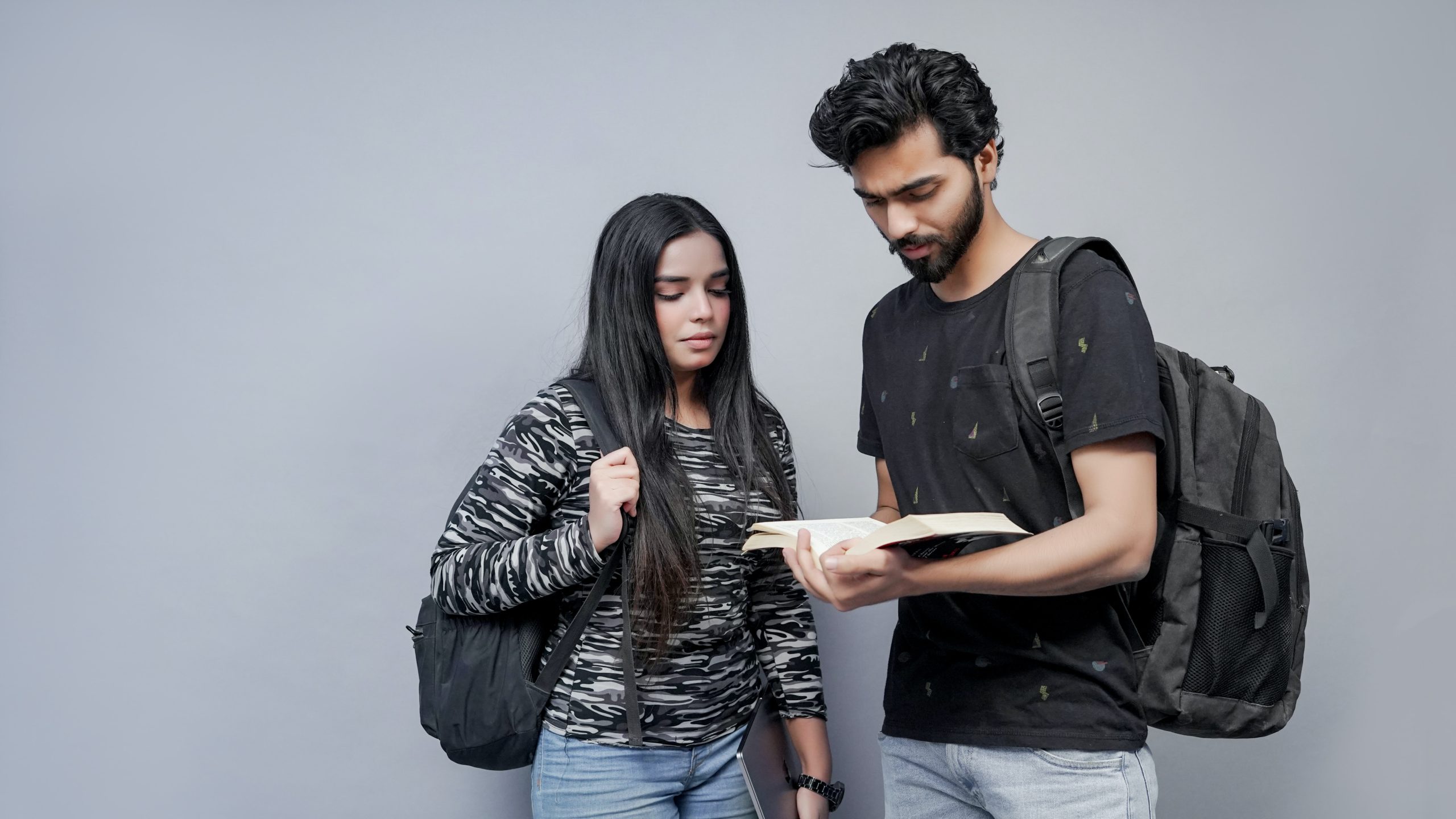Studying in the UK is a dream for many students from India. The UK offers a world-class education system with a wide range of courses and degrees that can help students develop their skills and career prospects. However, before students can start their studies in the UK, they need to obtain a UK student visa. In this article, I will guide you through the process of applying for a UK student visa from India.
What is a UK Student Visa?
A UK student visa is a type of visa that allows non-EEA (European Economic Area) students to study in the UK for a period of more than six months. The UK student visa is also known as a Tier 4 visa, as it falls under the Tier 4 category of the UK’s points-based system.
UK Student Visa Requirements
Before applying for a UK student visa, Indian students need to meet the following requirements:
Acceptance at a UK University: To apply for a UK student visa, Indian students need to have an offer of a place at a recognized UK university. The university must be on the UK government’s list of registered Tier 4 sponsors.
Financial Requirements: Indian students need to demonstrate that they can afford to pay for their course fees and living expenses in the UK. The financial requirements vary depending on the length of the course and the location of the university.
English Language Proficiency: Indian students need to demonstrate their proficiency in the English language by taking an approved English language test, such as the IELTS or TOEFL.
Tuberculosis Test: Indian students need to be tested for tuberculosis (TB) if they plan to study in the UK for more than six months. The test must be conducted at a UK government-approved clinic.
UK Student Visa Application
Once you have received an offer from a UK university and have met the relevant requirements, you can begin the application process for a UK student visa. Here are the steps you need to follow:
Complete the Online Application: Indian students need to complete the online application form on the UK government’s official website. The application form requires students to provide their personal details, course details, and financial information.
Pay the Application Fee: Indian students need to pay the application fee, which varies depending on the type of visa and the location of the visa application centre. The fee can be paid online using a debit or credit card.
Schedule an Appointment: Indian students need to schedule an appointment at the nearest UK Visa Application Centre. During the appointment, students need to submit their biometric information, including their fingerprints and photograph.
Prepare Supporting Documents: Indian students need to prepare and submit supporting documents, including their passport, offer letter from the UK university, financial documents, and English language proficiency test results.
Attend the UK Student Visa Interview: Some applicants may be required to attend a UK student visa interview. The interview may be conducted over the phone or in-person at the UK Visa Application Centre. The purpose of the interview is to assess the applicant’s credibility and intentions for studying in the UK.
UK Student Visa Interview
Some applicants may be required to attend a UK student visa interview. The interview may be conducted over the phone or in-person at the UK Visa Application Centre. The purpose of the interview is to assess the applicant’s credibility and intentions for studying in the UK.
During the interview, the applicant may be asked questions about their academic background, course of study, career goals, and financial situation. The applicant should answer the questions truthfully and clearly, providing supporting evidence if necessary.
If the applicant passes the interview, their visa application will be approved, and they will receive a vignette in their passport. The vignette is a sticker that allows the applicant to enter the UK for 30 days to collect their Biometric Residence Permit (BRP). The BRP is the official document that confirms the applicant’s immigration status in the UK.
Here are some frequently asked questions and their answers:
How long does it take to get a UK student visa?
The processing time for a UK student visa can vary depending on the location and time of year, so applicants are advised to check the current processing times for their location on the UK government website. Typically, the standard processing time for a Tier 4 visa application is around 15 working days, but it can take longer during busy periods.
Can I work while on a UK student visa?
Yes, Indian students can work part-time while studying in the UK. Tier 4 visa holders are allowed to work up to 20 hours per week during term time and full-time during vacations. However, it’s important to note that the income from part-time work should not be relied upon as the main source of funding for the course.
Can I extend my UK student visa?
Yes, it is possible to extend a Tier 4 student visa in the UK if the applicant meets the relevant requirements. The application to extend the visa must be made before the current visa expires, and the applicant must have a valid Confirmation of Acceptance for Studies (CAS) from a UK university.
Can I bring my family members to the UK on a student visa?
Indian students can bring their dependents, such as their spouse or children, to the UK on a Tier 4 student visa if they meet the relevant requirements. The applicant must show that they can support themselves and their dependents financially while studying in the UK.
Can I travel outside the UK on a student visa?
Yes, Tier 4 visa holders can travel outside the UK and return during their studies. However, it’s important to ensure that the visa remains valid and that the applicant has all the necessary documents and permissions to re-enter the UK.
Do I need to take an English language test to apply for a UK student visa?
Yes, most Indian students will need to take an approved English language test as part of their Tier 4 visa application. The level of English required can vary depending on the course and institution, so it’s important to check the specific requirements for each application.
Can I apply for a Tier 4 student visa if I have previously been refused a visa to the UK?
Yes, it is possible to apply for a Tier 4 student visa if a previous visa application has been refused. However, the applicant must disclose the previous refusal and provide any additional information or documentation that may support the new application.
Can I switch to a Tier 4 student visa from another visa category while in the UK?
Yes, it is possible to switch to a Tier 4 student visa from another visa category while in the UK, provided that the applicant meets the relevant requirements. However, it’s important to note that some visa categories may not allow for a switch to a Tier 4 visa, so it’s best to check with the UK government website or a qualified immigration adviser.
Can I apply for a Tier 4 student visa if I have a criminal record?
Applicants with a criminal record may still be able to apply for a Tier 4 student visa, but it will depend on the nature and severity of the offense. Applicants will be required to disclose any criminal convictions or charges and provide any relevant documentation or information as part of their application.
Can I work in the UK after I complete my studies on a Tier 4 student visa?
Yes,
The UK government recently reintroduced the Post-Study Work (PSW) visa, which allows Tier 4 student visa holders to remain in the UK for up to two years after completing their studies to work and gain experience in any field or at any skill level.
To be eligible for the PSW visa, students must have successfully completed a degree-level course at a recognized UK institution, and must have a valid Tier 4 student visa or a Student Route visa at the time of application. The PSW visa application can be submitted from within the UK, and the visa is granted for two years with no restrictions on the type of work that can be undertaken during this time.
It’s important to note that the PSW visa is a separate application process and is not automatic upon completion of studies. However, the reintroduction of this visa category is good news for Indian students who wish to gain valuable work experience in the UK after completing their studies.
In conclusion, obtaining a UK student visa can seem like a daunting task, but with proper preparation and guidance, the process can be straightforward. Students need to ensure that they meet the relevant requirements, complete the application process accurately and on time, and provide supporting documents as required. By following these steps, students can make their dream of studying in the UK a reality.





